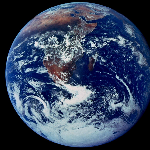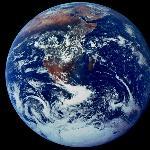
Marine Agronomy improves food-water security by Ocean Foresters
 Sergio Pena Jul 19, 2014 04:24 |
The main idea of "Ocean Agronomy" is very interesting, unfortunately you have not fulfilled a part of the application.
|
 Mark Capron Jul 19, 2014 08:23 | Proposal contributor
Dear Sergiopena,
We ran out of time for listing references, which are actually more extensive than our references for https://www.climatecolab.org/web/guest/plans/-/plans/contestId/1300701/planId/1307120.
|
 Sergio Pena Jul 19, 2014 10:01 |
Thank you for your answer. One question on the topic of subsidies. In a world in which countries are fighting against subsidies (legally speaking) how would the project comply with its own tasks without any subsidy? Best.
|
 Jim Stewart Jul 20, 2014 06:15 |
Marine Agronomy is doing well in Asia now without any subsidies. However, currently many terrestrial crops are heavily subsidized, such as corn in the USA. However, as the climate crisis gets worse and more and more terrestrial crops fail, some countries will realized the benefits of shifting some of those subsidies to marine agronomy.
Jim Stewart, PhD, for the Ocean Foresters team
|
 Mark Capron Jul 31, 2014 08:07 | Proposal contributor
Scientists are discussing yet another sudden GHG-triggered disaster which suggests our adaptations need to be even more robust than we have been considering.
Yet another GHG-triggered disaster would be a repeat of the Laki, Iceland volcano eruptions of 1783. These eruptions appear to have caused drought-based starvation as far as Egypt and Japan in addition to starvation on and closer to Iceland. See http://volcanism.wordpress.com/2011/06/08/on-this-day-the-laki-eruption-begins-1783/. The scenario is:
1. The weight of Icelands glaciers suppress volcanic eruptions.
2. GHG-warming melts the glaciers and relieves the restraining pressure.
3. The volcanoes erupt sooner then they would if the glaciers were intact.
|